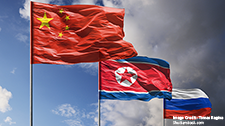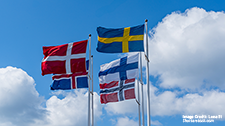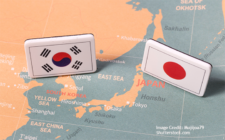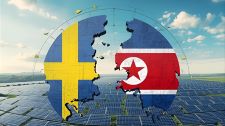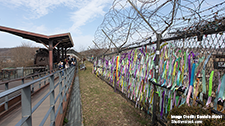Stockholm Korea Center
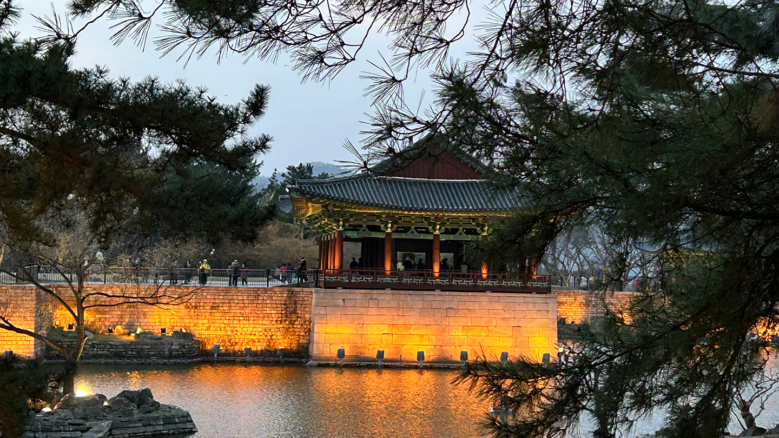
The Stockholm Korea Center is an organization within the Institute for Security and Development Policy (ISDP), an independent research institution and think tank located in Stockholm. The Center receives generous support from the Korea Foundation and provides expert knowledge on issues related to Korea, its society and security environment. It also aims at being a relevant platform for cross-cultural understanding and cooperation.
The Center’s work is anchored in ISDP’s commitment to dialogue as one of the primary means to achieve enduring peace between conflicting parties. Recognizing that a successful dialogue requires careful attention to the needs, interests and arguments of all parties involved in a conflict, the Center stresses its role as a non-partisan hub for generating independent initiatives, analysis and proposals. Cognizant of the challenges emanating from a rapidly changing security environment, both on the regional and global level, and the threats against the existing world order and international law, the Center focuses on identifying key factors and solutions. The Center pays particular attention to analysing developments in the bilateral relations between the two Korean states and their regional neighbours, while also bringing in perspectives relating to the Nordic states and the EU. The Center recognizes that broader global issues such as gender equality, climate change and the ongoing transition to green economies also have profound effects on bilateral and multilateral relations.
Research and Analysis
ISDP’s staff, experts and extensive network of associated fellows, engage in a wide range of research projects. The results are disseminated in a number of publications, both public and in-house. The conclusions are also made available to the public via seminars, webinars, workshops and comments in the media.
Regional Security Issues in Northeast Asia: The relationship between Russia and North Korea has recently gone through remarkable and alarming changes. Moscow now completely ignores the UN Security Council resolutions against the North Korean nuclear and missile programs and instead actively supports its economy and military buildup in exchange for receiving military personnel and arms to the ongoing war against Ukraine. China, on its part, has not only increased its repeated threats against Taiwan, but has also continued its aggressive and hegemonistic policies and actions in East Asia. While both South Korea and Japan are dependent on American security guarantees, the new American administration under President Trump has also threatened these countries with gigantic tariffs on their exports to the United States, thereby undermining the trust Tokyo and Seoul have had for American commitments to their defense.
North-South Relations: North and South Korea have recently had few or no working bilateral contacts. In June 2020 Pyongyang destroyed the inter-Korean liaison office the the Kaesong industrial cooperation and has recently said that it no longer aims at reunification. In South Korea policies have shifted with the elected presidents, but the newly elected Lee Jae-myung has vowed to improve relations with North Korea, “based on cooperation with the U.S.”. Shifts in bilateral policies and relations between the two Korean states have a tendency to influence stability in the whole region and are therefore important to continuously analyze. Prospects for a functioning dialogue should be encouraged. The Center actively follows not only ‘hard’ political and security issues, but also closely follows economic, social and cultural developments.
EU-Korea-Nordic Countries: Given the similar interests and policies of Europe and South Korea, not least in key areas such as international trade, sustainable solutions, green technology, AI, gender equality, and advanced technological research, the Center follows developments closely and aims at producing relevant policy recommendations when applicable.
Gender and Development: The Center believes that gender equality is of critical importance for sound political, economic and social developments and has a crucial and positive impact on finding realistic and lasting peaceful solutions to ongoing military and other conflicts. The Center therefore pays attention to how gender quality is relevant in all its activities.
Guest Researchers Program
The Stockholm Korea Center operates a Guest Researchers Program, offering a platform for visiting scholars from both Koreas to participate in research, training, networking and activities relevant for their aims and objectives. In Stockholm, guest researchers should collaborate on producing a publication which addresses a current topic relating to Korea. The study should follow the formats regulating all ISDP’s publications and will be widely distributed. The guest researchers are also encouraged to discuss their work and research results in both restricted and public seminars. The guest researchers program provides ample opportunities to engage with Swedish and European academic and policy making networks, thereby contributing to cross-cultural understanding and exchange of ideas.
International Delegations
The Center regularly invites partners in Asia to visit Stockholm for seminars and related activities. In a similar fashion Center staff often participate in international seminars, conferences and events. Drawing on ISDP’s extensive networks, visiting delegates will have opportunities to meet important decision makers and leading scholars in various academic fields.
The Korea Center’s Newsletters
The Stockholm Korea Center publishes a much-appreciated weekly newsletter on issues relating to developments on the Korean peninsula. A monthly newsletter, including comments on recent developments from the head of the Center, is also published. You can register for this newsletter by registering to ISDP’s monthly newsletter.
